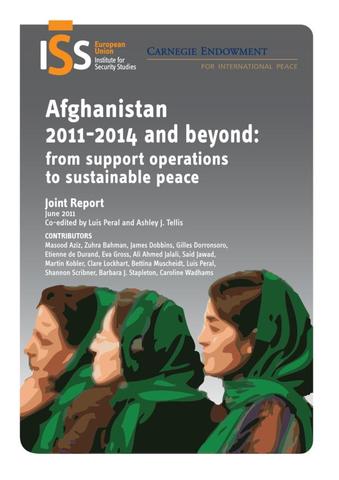You are here
Afghanistan 2011-2014 and beyond: from support operations to sustainable peace

There is a general sense of urgency among experts regarding the situation in Afghanistan. The period of transition that is currently underway is seen as a last opportunity to create the necessary conditions for transforming international support in a way that reinforces a viable democratic state. The key lies in transforming what is basically a foreign military operation into a peacebuilding operation led by the Afghan government and the UN backed by international support, including military support if necessary, but always subordinate to civilian authorities. Thus, as ISAF scales down, the EU and the US must work closely and intensively together, starting with supporting a strengthening of the UN Assistance Mission in Afghanistan (UNAMA), along the following lines. The priority given by ISAF to doubling the size of the Afghan National Security Forces (ANSF) is misguided and may even jeopardise future democratic progress in Afghanistan, since it represents an extra burden on the country in a likely context of a reduction of international resources.
Not only have quality of training and equipment so far been disregarded, but so also has the fundamental concept of civilian police. The international community still needs to confront the issue of a civilian component for the ANSF in its training and long-term practice, as well as the issue of accountability. Military capacity emerging in a vacuum can even threaten democracy. The Afghan state must be able to control its security forces, which in turn requires that national institutions are legitimate, and perceived as such by the population. While the bulk of international assistance to Afghanistan has been allocated to traditional security schemes, only a marginal amount of effort has been directed to strengthening local governance and institutions.